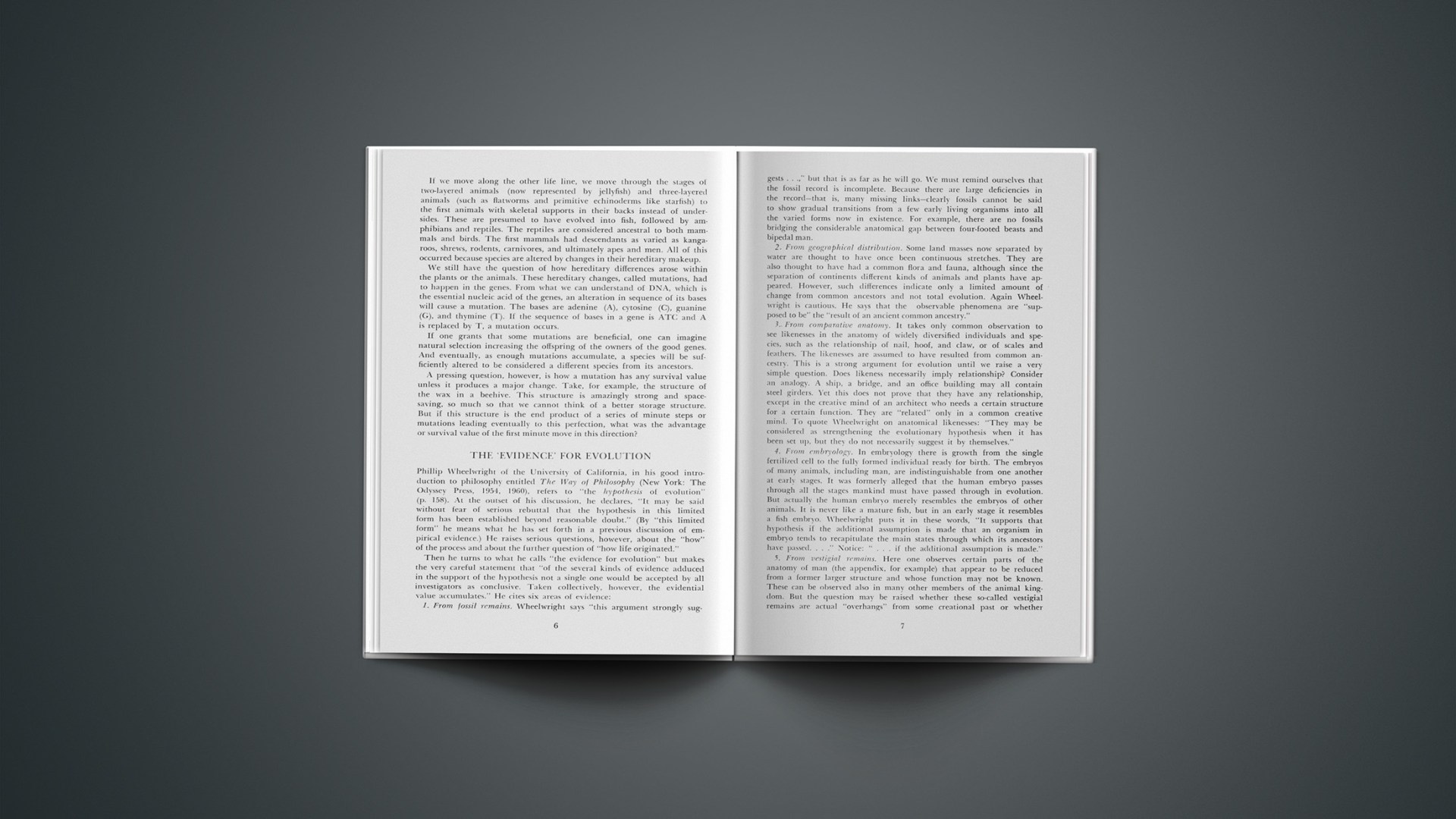A ship sets sail across the ocean. It carries neither pilot nor compass. What would you say of the owner and of the captain of the ship?
A plane starts a flight across the North Pole. There is no navigator on board and no way to chart the course. One would rightly question the sanity of the crew.
A man starts to drive across the United States. He does not provide himself with road maps, nor does he ask anyone what route to take. He would almost certainly take the wrong roads.
A man becomes acutely ill. Neither he nor his family will call the doctor, nor will he take any medicine. What would one think of such people?
A soldier goes into battle. He takes with him neither gun, nor ammunition, nor any kind of weapon with which to attack the enemy or defend himself. He would be a very foolish soldier.
A student enters a classrom to get ready for an examination. He puts cotton in his ears so that he cannot hear the teacher and closes his eyes so that he cannot read his books. He would well deserve a “dunce cap.”
A physician goes into surgery to operate on a patient but refuses to use the necessary instruments. Would you want him to operate on you?
A lawyer goes into court to defend a client, but he does not know the points of law involved, nor can he argue the case. What would people think of such an advocate?
The owner of a large store has no inventory of his stock, nor does he know the cost of the items on the shelves. Failure in business would inevitably be his lot.
A motorist driving at night refuses to turn on the lights. Can you figure him out?
A carpenter attempts to build a house, but he will not use a square, saw, hammer, or plane. What kind of a house can he build?
A house is wired for electricity, and all the fixtures are in place. But the owner refuses to turn the switches for either light or power. Only one deprived of his senses would act so foolishly.
A man is walking down a dark road at night. He does not know the road. He has in his hand a flashlight that he will not use. What would you think of such a person?
A bridge is washed out, and the highway patrol sets up warning lights and a barricade. A motorist refuses to stop and crashes to his death. Who was to blame?
One’s natural reaction to these imagined absurdities is: Only a fool would act like that.
The world is full of fools, men and women who are ignoring the only Book that contains the chart and compass for living and for dying.
The Bible above all else tells us of the Pilot of our souls, the Redeemer from sin, the One who is the Way, the Truth and the Life, the only Saviour of mankind.
This Book gives us a map of the past, the present, and the future. By it alone can history be understood, and today’s news explained, and tomorrow’s events evaluated.
Much is being said today about man’s moral and ethical responsibilities, but unless these are based on the teachings of God’s written Word they are futile. It is because men have left (or never known) true Christian ethics that they now talk of “situational ethics”—do what you consider right under the circumstances in which you find yourself.
We are engaged in a daily battle with Satan. Only in the Bible do we learn of his methods, his plans, his ultimate destiny, and the way to gain victory over him.
Books on psychology and on human personality and behavior are legion. But only in the Bible do we learn the underlying issues of life and how to meet them.
In our day, moral and spiritual values have lost their meaning for many. Our generation has largely cut loose from its moorings and does not know where it is going or what to do. The concepts that are based on the rightness or wrongness of behavior are largely lost and cannot be replaced by mere human philosophy.
In the Bible we find a clear statement of the values that are based on God’s holiness. There we find an anchor for the soul in terms the Spirit interprets. There we are confronted with the situations of everyday life and told how God would have his children act.
The Psalmist, extolling the blessings of God’s Word available to all who will believe and obey, says: “Thy word is a lamp to my feet and a light to my path” (Ps. 119:105). Has there ever been a time when men needed light for daily living more than today? To ignore this divinely given light is a crime against our own souls. In this same psalm we read a prayer that should be voiced constantly by every Christian: “Keep steady my steps according to thy promise, and let no iniquity get dominion over me” (v. 133).
The foolish persons described at the beginning of this article should make each of us consider his own attitude toward the Bible. If we are neglecting it, we are doing so to our eternal loss and our daily confusion. For without God and the revelation he has given us of how we should live and what we should do, we continue as blind fools, willfully rejecting the light. We may be advanced in every form of knowledge. We may master multitudinous scientific facts and be aware of the many ramifications of human wisdom. But only by the Bible do we find the searchlight of the Spirit revealing our own hearts and at the same time showing us the way in which we should walk.
In the Bible we learn how to be saved. Paul told Timothy that it was the Holy Scriptures that are able to make us wise unto salvation, for there we find the Christ. For each of us there must be a personal experience with the living Christ, but with that experience there must be an understanding of who he is, of his Person and Work. Others may expand and interpret the meaning to us; but in the Bible, by the Spirit, we meet him face to face.
We should be trained soldiers, knowing how to use the Sword of the Spirit; enlightened guides, able to teach others the unsearchable riches of the books. We should be wise with a wisdom from above, thereby distinguishing between the true and the false.
The satanic question, “Yea, hath God said?,” is still heard today. Those who are wise will let the Bible speak for itself.
Those who reject or neglect the Word are foolish indeed, for “the unfolding of thy words gives light; it imparts understanding to the simple” (Ps. 119; 130).
L. NELSON BELL










